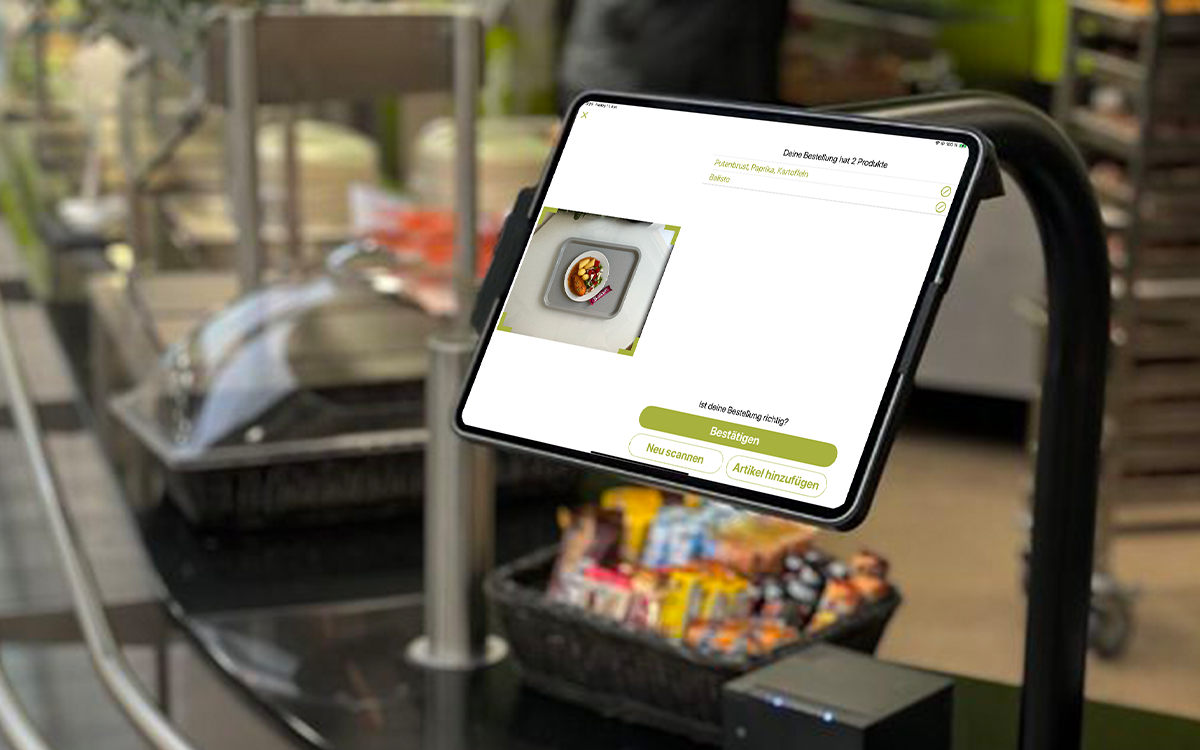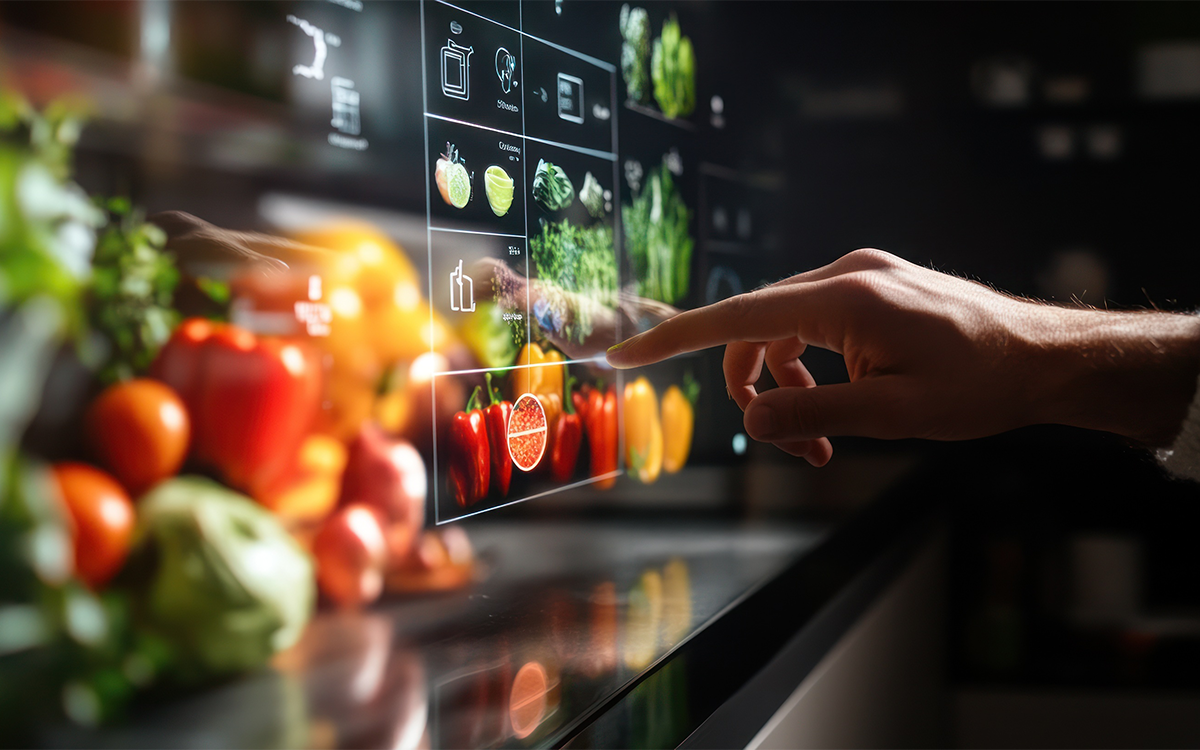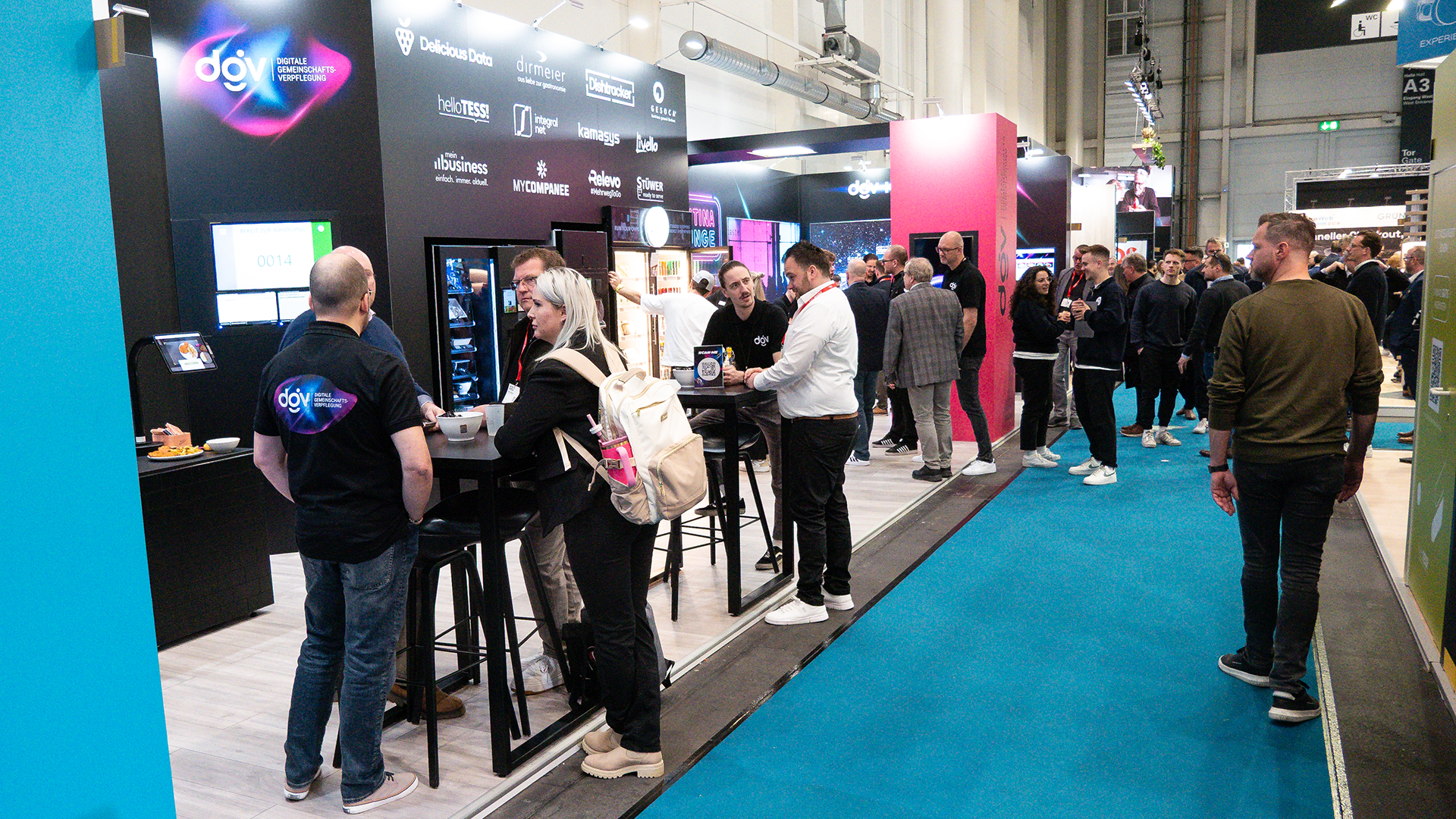Change is underway in the communal catering sector. Chefs, kitchen managers and decision-makers are faced with the challenge of continuously improving their service quality in order to meet the increasing demands of their guests.
In the age of digitalization, new paths are opening up that make it possible to meet this demand: Customer focus, individualization and innovative concepts are the key to success.
Digital solutions to improve customer orientation
Digital solutions are playing an increasingly important role in communal catering, with companies increasingly relying on digital signage solutions, among other things. Attractive displays can be used to present menus and offers more attractively. This not only attracts the attention of guests, but also speeds up the ordering process.
Service robots are another solution that is revolutionizing service. This technology relieves existing staff and speeds up the service process by serving food and drinks and giving human staff more time for core tasks.
An app allows guests to order food, give feedback and rate services - all directly from their smartphone. This digital platform not only improves communication between guest and restaurateur, but also enables personalized customer interaction.
Individualization of services through new menu systems
Combinable menu systems make it possible to put together individual offers to suit guests' personal preferences. This flexibility helps to increase guest satisfaction and loyalty.
Interactive systems allow guests to place their orders directly at the table. This simplifies the ordering process and improves the quality of service: staff can concentrate more on the guests' needs.
Customer surveys and feedback offer potential for sales growth
Customer surveys and feedback are essential tools for restaurateurs to better understand their guests, improve the quality of their services and drive sales growth. Gathering customer feedback, addressing individual needs, strengthening customer loyalty and implementing targeted improvements can have a significant impact in the foodservice industry. Those who use customer surveys as a strategic tool will not only satisfy their guests, but also achieve long-term business success and secure a competitive advantage.
Increased efficiency through service robots
Service robots offer the potential to improve operational processes in communal catering. Thanks to their ability to take over repetitive tasks, they can relieve staff and increase efficiency. For example, they shorten service staff's walking distances and save them from having to carry heavy dishes.
Companies that have implemented service robots report positive experiences: The robots not only increase the speed of service, but also boost guest satisfaction.
Application example: Check-In concept in communal catering
The check-in concept enables guests to have their food served at their table within a few minutes of ordering. The combination of check-in systems and app-based ordering options optimizes processes and speeds up service. Check-In offers numerous advantages, including a reduction in waiting times, efficient use of resources and increased guest satisfaction.
Conclusion: Expanding the range thanks to vending machine technology
Vending machines and smart fridges are on the rise in the communal catering sector. With over 600,000 vending machines in Germany, they are becoming increasingly important in companies. While vending machine combinations replace small canteens or make them possible in the first place, Smartfridges are a cost-effective alternative. Both solutions expand the catering offer.


